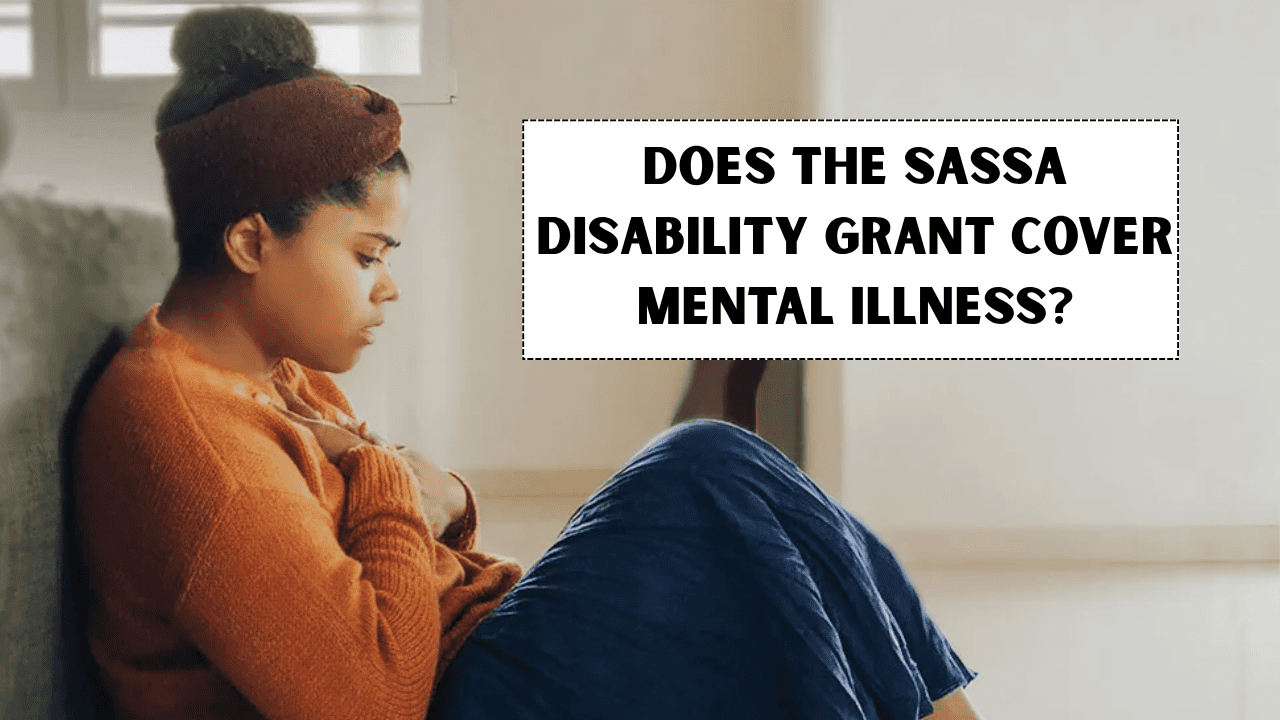In South Africa, the SASSA Disability Grant officially includes mental illness as a valid condition for eligibility. If someone’s mental health limits their ability to work for six months or more, they may qualify for financial support. This recognition is rooted in national law, and the grant provides essential assistance to help manage daily living costs such as medication, food, and other necessities.
However, despite this inclusion, many applicants with mental health conditions face serious obstacles during the application and renewal processes. A shortage of mental health specialists, the often “invisible” nature of mental illness, and administrative red tape make it difficult for deserving individuals to access this crucial support. Rural residents and those unfamiliar with the system often experience greater delays and frustration.
This article breaks down how the SASSA Disability Grant applies to mental illness, explains who qualifies, what conditions are recognized, the challenges involved, and shares practical tips to improve your chances of a successful application. It also highlights why this grant is vital for people managing long-term mental health conditions in South Africa.
Understanding the SASSA Disability Grant and Mental Illness

The SASSA Disability Grant is a monthly government allowance designed to support South Africans who cannot work due to a physical or mental disability. For those living with mental illness, this grant can help cover essentials like medication, food, and transport—making a big difference in everyday life.
Legal Recognition of Mental Illness
South Africa’s Social Assistance Act clearly states that both physical and mental disabilities qualify for the disability grant. According to the Act:
“A person qualifies for a disability grant if they have a physical or mental disability that makes them unfit to work for longer than six months.”
This means that mental health conditions—when they significantly interfere with your ability to work—are legally protected under this system.
Who Can Apply for the Grant?
To apply for the SASSA Disability Grant, you must:
- Be a South African citizen, permanent resident, or refugee.
- Be between 18 and 59 years old.
- Not be living full-time in a state institution (e.g., hospital or prison).
- Meet financial criteria:
| Status | Income Limit (per year) | Asset Limit |
|---|---|---|
| Single | Less than R86,280 | R1,227,600 |
| Married | Combined income less than R172,560 | Combined asset limits apply |
Temporary vs. Permanent Grants
Mental health conditions vary in how long they last. To accommodate this, SASSA provides two types of grants:
- Temporary Disability Grant – For conditions expected to last 6 to 12 months.
- Permanent Disability Grant – For conditions expected to last longer than 12 months.
This structure gives flexibility for people whose conditions may improve with treatment over time.
Which Mental Health Conditions Are Included?
Many serious mental health conditions qualify for the grant, such as:
- Schizophrenia or other psychotic disorders
- Bipolar disorder, especially when it affects mood stability and work
- Severe depression, when it limits daily function and ability to work
For example, a man named Howard, who was diagnosed with Schizoaffective Disorder, was able to get the grant to help manage his condition financially.
How the Medical Assessment Works
To apply, you’ll need a medical assessment done by a state-appointed doctor. This doctor will evaluate whether your condition limits your ability to work. You must bring all your medical records, reports, and discharge papers to support your case.
Common Assessment Challenges
- There are only around 360 state doctors nationwide for these assessments.
- Some doctors lack training in mental health and may not fully grasp the impact of certain conditions.
- Medical records may be incomplete due to fragmented mental health care.
As Dr. Sean Baumann, a former psychiatrist at Valkenberg Hospital, explains:
“The shortage of specialists and the lack of understanding of mental illness symptoms, especially in busy clinics, creates barriers for applicants.”
Obstacles Faced by Applicants
Even when mental illness qualifies, applicants often face these difficulties:
- Repeated SASSA visits: Many applicants have to return several times before approval.
- Short-term approvals: Grants often last only 6 to 12 months, requiring frequent renewals.
- Geographic barriers: Rural applicants may struggle to access assessment centers.
- Complicated paperwork: Forms and documentation can be overwhelming, especially for people dealing with mental illness.
Why the Grant Matters for Mental Health
This grant is not just about money—it provides emotional and psychological relief. With the grant, beneficiaries can:
- Afford crucial medication
- Avoid stress caused by extreme financial pressure
- Reduce the chances of relapse or hospitalization
Dr. Baumann emphasizes this point:
“Economic hardship from not having access to the grant can cause relapses or hospitalisation. The grant is intrinsic to their care.”
Tips to Improve Your Chances
Here are a few practical steps to help improve your application or renewal process:
- Collect All Medical Records: Include hospital notes, therapy reports, prescriptions, and assessments.
- Ask for Help: Get support from a social worker, mental health organization, or your doctor.
- Know Your Rights: If denied, you can file an appeal through SASSA’s official process.
- Set Reminders: Keep track of renewal dates to avoid gaps in your grant.
Where to Get More Support
Need help applying or appealing? These resources can assist:
- SASSA Official Website
- Mental Health Information Centre South Africa
- South African Depression and Anxiety Group (SADAG)
- Legal Aid South Africa
Mental illness is legally acknowledged under South Africa’s disability grant system, but the road to securing that support can still be tough. The system needs more awareness, better-trained professionals, and simplified processes to truly serve those in need.
If you or someone you care for is struggling with a mental health condition that affects work, don’t give up. With the right documents, support, and knowledge of your rights, you can access the financial support that helps bring stability and dignity to daily life.








